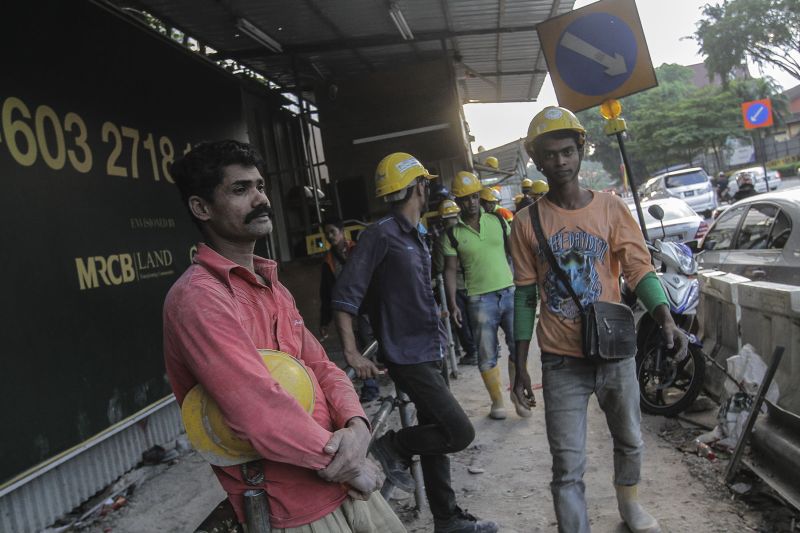KUALA LUMPUR, Jan 7 — Putrajaya’s new policy requiring employers to personally pay the levy for hiring foreign workers may be part of the government’s preparation to join the Trans Pacific Partnership (TPP), a British daily suggested.
The Guardian noted that the trade deal states that any levy charged for the employment of foreign workers must be paid by employers rather than workers — which Malaysia had previously practised, by deducting from their wages.
“The announcement has also been viewed as an attempt to shake off Malaysia’s reputation as a hub for human trafficking; until recently, Malaysia was the bottom-ranked country in the US State Department’s annual Trafficking in Persons report,” the newspaper said in an article yesterday.
Malaysia’s ranking was upgraded to Tier 2 on the watch list in 2015.
However, the TPP which was scheduled to take effect from 2018 may not happen after all as the United States’ president-elect Donald Trump previously said that the deal would not go through under his leadership.
The hiring levy, known locally as the Employer Mandatory Commitment (EMC), took effect from January 1.
The Guardian noted that Deputy Prime Minister Datuk Seri Ahmad Hamidi said the new ruling was to ensure employers take full responsibility for hiring foreigners.
National news agency Bernama had cited Zahid saying some employers did not pay their workers according to the minimum wages policy introduced last year, restricted the movement of their migrant workers and even kept their passports.
But there are also concerns that the ECM might be reversed as a similar levy policy was previously dropped by Putrajaya in 2013 following flak from employers.
Malaysian Employers Federation executive director Shamsuddin Bardan has objected to the new ruling, insisting that the current system which has foreign recruits themselves paying the levy, has not stopped the flow of migrant workers into the country.
“If [the current system was] not fair, migrant workers would not want to come to Malaysia. What Malaysia is offering them is much better than in their own country,” he was quoted saying by The Guardian.
The paper also cited Bar Council assistant director for practitioners affairs Sumitha Shaanthinni Kishna saying that the EMC might still be reversed with the next general elections due next year.
“We are already seeing employer groups up in arms over this. With elections around the corner, we may see another reversal,” she was quoted saying.
Sumitha is a member of the Bar’s industrial law committee and also sits on its migrants, refugees and immigration affairs committee on top of its human rights committee.
Putrajaya previously attempted to introduce the policy of having the levy paid by employers, but reversed it after implementing a minimum wage structure in 2013.
Malaysia’s current minimum wage is RM1,000 a month for the peninsula and RM920 a month for Sabah, Sarawak and Labuan.
However, there is now doubt on whether the EMC will be enforced in Sarawak with Deputy Home Minister Masir Kujat reportedly saying the hornbill state will be spared for the time being.
“I have called the deputy secretary-general. She said the new policy is not applicable to Sarawak at the present moment,” he was quoted as saying by local daily The Borneo Post in a report Thursday.
However, Zahid did not previously mention any state has been exempted from the new policy in his December 31, 2016 announcement.



















